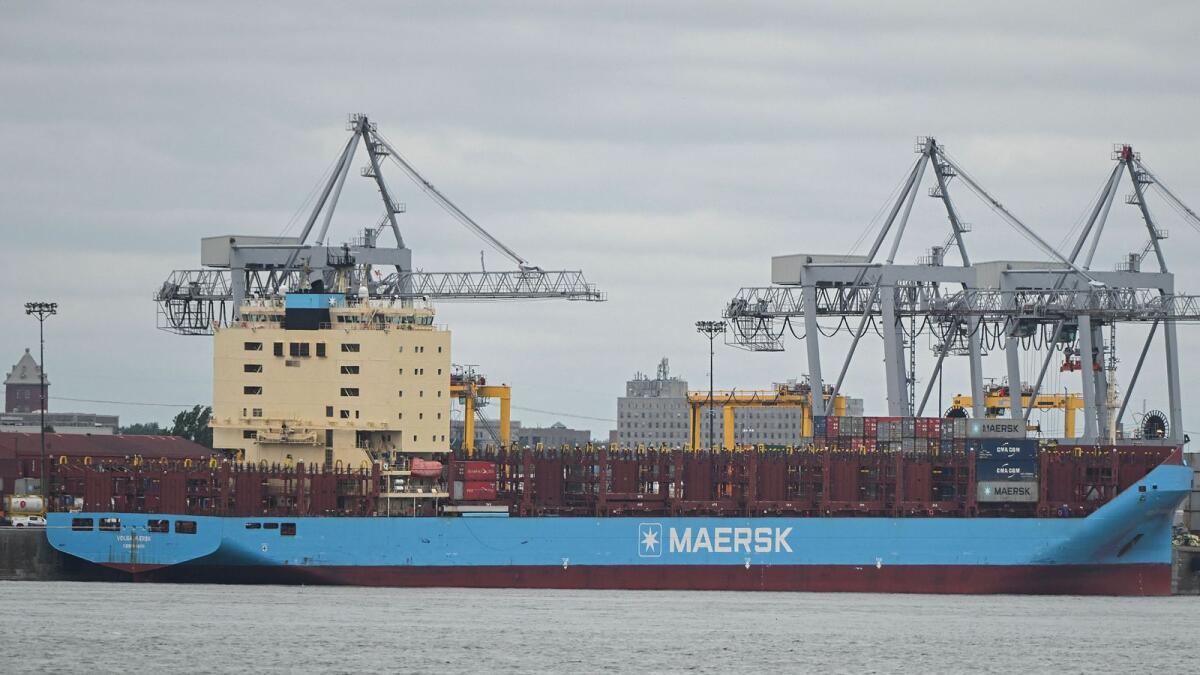The A.P. Moller-Maersk company recently announced that disruptions to its container shipping via the Red Sea have extended to its entire global network, causing congestion at alternative routes and transshipment hubs essential for trade with Far East Asia, West Central Asia, and Europe. Since December, shipping groups have been diverting vessels around Africa’s Cape of Good Hope to avoid attacks by Iran-aligned Houthi militants in the Red Sea, leading to longer voyage times and higher freight rates. Maersk warned that the coming months would be challenging as disruptions continue, affecting ports across Asia, including Singapore, Australia, and Shanghai. The delays in Southeast Asian hubs have also impacted Maersk’s Oceania network, causing congestion, equipment shortages, and capacity constraints.
The ripple effects of the disruptions in the Red Sea have caused delays and disruptions in Northeast Asia and Greater China ports, with delays extending beyond the hubs. Maersk stated that the delays in Southeast Asian hubs pose a risk of disruption at Australian ports due to vessel bunching on arrival, resulting in longer waiting times and other delays. Despite the challenges, Maersk highlighted that ocean cargo demand remains robust globally, and the company is working to limit disruptions to customers by securing additional containers and adjusting its network and supply strategies accordingly. Shares in the company were down 1.5% following the announcement of the extended disruptions in container shipping via the Red Sea.
The extended disruptions in container shipping via the Red Sea are impacting global trade routes and causing congestion at key ports and transshipment hubs. Shipping groups, including Maersk, have resorted to diverting vessels around Africa’s Cape of Good Hope to avoid attacks by Iran-aligned Houthi militants in the Red Sea, leading to longer voyage times and higher freight rates. Maersk’s warning of challenging months ahead reflects the cascading impact of the disruptions on its entire global network, affecting trade with Far East Asia, West Central Asia, and Europe. The delays and disruptions in key ports across Asia are causing ripple effects, extending beyond Southeast Asian hubs to Northeast Asia and Greater China ports.
Maersk’s Oceania network has been particularly affected by the congestion in Southeast Asian hubs, resulting in equipment shortages and capacity constraints. The delays and disruptions in Southeast Asian hubs pose a risk of further disruption at Australian ports, highlighting the domino effect of the disruptions in the Red Sea on global trade routes. Despite the challenges, Maersk remains committed to meeting customer demand and limiting disruptions by securing additional containers and adjusting its network and supply strategies. The company’s proactive approach to addressing the disruptions reflects its commitment to maintaining a robust global shipping network amid ongoing challenges in the industry.
In response to the extended disruptions in container shipping via the Red Sea, Maersk is preparing for continued challenges by adjusting its network and supply strategies. The company’s focus on securing additional containers and working to limit disruptions to customers underscores its commitment to maintaining a reliable global shipping network. The delays and disruptions in key ports across Asia serve as a reminder of the interconnected nature of global trade routes and the impact of regional conflicts on the shipping industry. Despite the challenges posed by the disruptions in the Red Sea, Maersk remains optimistic about the resilience of global ocean cargo demand and its ability to navigate the challenges ahead.
In conclusion, the extended disruptions in container shipping via the Red Sea are causing congestion and delays at key ports and transshipment hubs, affecting Maersk’s entire global network. The ripple effects of the disruptions are being felt across Asia, impacting trade routes with Far East Asia, West Central Asia, and Europe. Maersk’s proactive approach to addressing the challenges, including securing additional containers and adjusting its network and supply strategies, reflects the company’s commitment to maintaining a robust global shipping network. Despite the challenges ahead, Maersk remains focused on meeting customer demand and navigating the disruptions to ensure the smooth flow of global trade.










